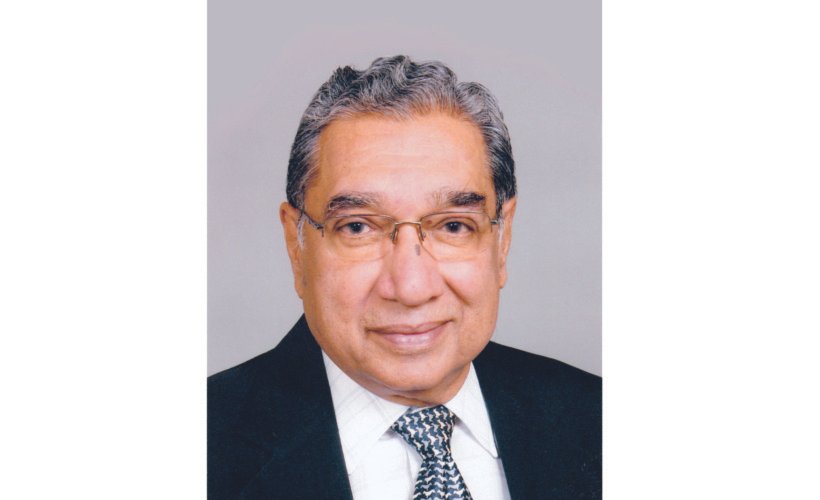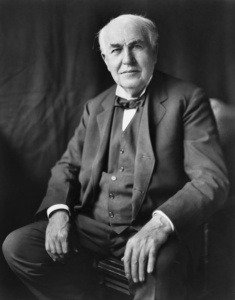
WALTER VIEIRA explains how in the race of life, the people who recognise opportunity and seize it, are the ones who win
Recently, there was a news article about an African runner at a world running championship who got confused just before the finishing line. Just then, the second runner who was a Spaniard gave a push to the African runner from behind, so the African became the No.1 in the race. The Spaniard could very well have overtaken the African in that split second, but he did not. He let the African win, because he thought he deserved to win! The news was all over in the media. The Spanish runner, in fact, became more famous than the No.1, who actually won the race. This is an excellent example of how a No.2, in point of fact, became No.1, and was talked about in many parts of the world.
I have been amazed in the past when I watched a marathon race, where a runner who led the pack for much of the race lost out to either number 2 or 3 or even 4, in the last lap to win the race! This is much to the surprise and shock of the former front runner and the surprise of many of the viewers. This also happens in car races like F1, and with teams who dominate much of the game in football, or hockey, where the seemingly weaker opponent shoots the winning goal just before the end of the game − and WINS! This happens in life as well. I once read a guideline, “The person who discovered electricity did not make the money. It was the person who discovered how he could distribute electricity who became prosperous”.
When I read Bill Bryson’s book, At Home, I realised how true this was – and how many of us can take comfort, even when we are not the FIRST in the race.
There is a case of Abraham Gesnetz, a physician by profession, who had a passion for coal geology, and while experimenting with coal tar, developed a way to distil it into a combustible liquid called ‘kerosene’.
Kerosene burned beautifully and gave light as strong and steady as that of whale oil (used earlier for illumination), but with the potential to be produced much more economically.

Thomas Alva Edison
It was only in 1879 that Thomas Alva Edison, who had started is quest in 1877, could invite a select audience to come and witness a demonstration of his new incandescent lights. Although Swan also gave a public display in 1879 in Newcastle, Edison was far more prominent and therefore more lastingly significant
Then came a man named George Bissell, former superintendent of schools, who saw the potential and formed the Pennsylvania Rock Oil Company (PROC) and began drilling in Western Pennsylvania. When others saw how easy it was to extract oil and turn it into kerosene, a rush was on. Others produced much bigger volumes than PROC. The prices of land, that had gone very high, dropped, in relation to the oil prices, which dropped from US$10 a barrel in January 1861 to just 10 cents a barrel by December 1861!
Most got out of the business, but a small firm in Cleveland, Clark and Rockefeller, which dealt in pork and other farm commodities, decided to move in. John D Rockefeller gradually controlled about 90% of the American oil business. His virtual monopoly allowed him to keep prices stable and also grow fantastically rich in the process. By 1900, his personal wealth was increasing by about US$1bn (billion) a year, measured in today’s money. No human being in modern times has been richer! He won, although he was a ‘Johnny come lately’. In 1846, a man called Frederick Holmes patented an electric arc lamp. He followed a technique used by Humphrey Davy, 40 years earlier, which Davy had not capitalised on. In the 1840s, a young pharmacist in Newcastle, UK, Joseph Swan, made some successful experiments to take this further in the field of illumination. In the 1870s, Herman Sprengel, a German chemist working in London, developed what came to be called the Sprengel Mercury pump, a crucial invention that made household illumination possible. But it stopped there.
It was only in 1879 that Thomas Edison, who had started his quest in 1877, could invite a select audience to come and witness a demonstration of his new incandescent lights. Although Swan also gave a public display in 1879 in Newcastle, Edison was far more prominent and therefore more lastingly significant. He had wired the whole district of lower Manhattan. Where Edison excelled was as an organiser of systems. The invention of the light bulb was a wonderful thing, but not of much practical use, when there was no socket to plug into. A problem successfully solved by Edison!
Time and time again, it shows that the leader of the pack need not be the ultimate winner.
The real and final winners can come from No. 2, 3 and even 4! We need to remember this in life, when we do not make it to the No.1 spot! We still have a chance to be a winner





